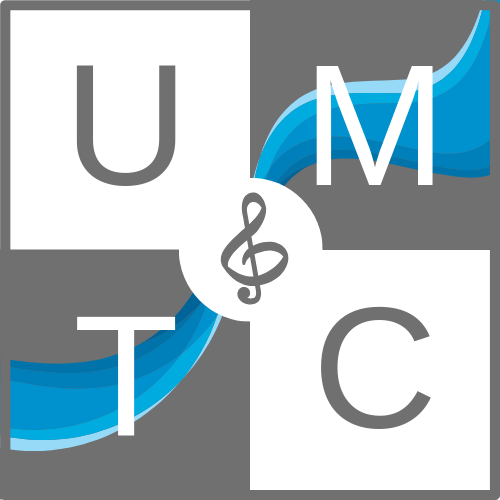The therapists from our agency have had the pleasure of working with amazing children and families over the years. Some of the most special relationships we have developed and cherished have been with families of children with Down Syndrome. As certified therapists, we have the special tool of music, which seamlessly creates a therapeutic environment that spontaneously elicits movement, sound production, and verbal or non-verbal engagement with others.
Music Therapy Assessment
Down Syndrome can affect learning abilities in different ways, but it usually causes mild to moderate intellectual impairment. Children with Down Syndrome have delays in speech and motor skills and may need help with self-care, such as dressing and grooming. These challenges can inhibit them from engaging in social opportunities as easily as typically developing children.
A Board-Certified Music Therapist conducts an assessment and when the results show a 25% or higher increased level of independence in one or more of the developmental domains when musical techniques are used, music therapy is recommended. The therapist uses the assessment information to create goals and objectives that will target language development, motor skills, social-emotional needs, or for learning and retaining information.
Let’s break it down into four of the developmental domains:
Motor Skills
Rhythmic exercises promote better coordination. Instrument play improves muscle control. The rhythmic nature of music gives students a better understanding of the feeling of a movement and the timing of that movement. Rhythm provides a predictable structure, increasing confidence to explore a new movement that they might not have been willing to try without music. The repetitive nature of music and songs helps the child to practice the movement over many verses and choruses. Instruments are motivating, fun, and encourage movement using both sides of the body simultaneously or independently.
Speech and Language Skills
Oral motor muscle control is commonly weak in individuals with Down Syndrome. When singing songs using silly sounds children are drawn to look at the therapist’s mouth. The predictable nature of a song maintains the child’s attention as they watch for the next time the sound effect will be produced. This also creates a structured amount of time for the child to motor plan as they prepare to attempt to imitate the lip and tongue position again. While they are attending and watching for the predictable moment within the structure of the song their active participation also increases. It is common for the children to use their language to ask for the song to be sung again or to request the next favorite song or instrument.
Cognitive Skills
Learning and retaining information are primary cognitive functions. Music Therapists embed information into original songs or chants to support the learning of pre-academics and academics. Mnemonics, the study, and the development of systems for improving and assisting the memory are readily used with rhythm and singing when teaching individuals of all ages new information and for the retention of that information. Once a child learns a song, for example, the ABC’s, learned easily through listening and singing the song, a Music Therapist then takes that learning a step further. One method is to create an improvisational piece using one of the letter sounds, paired with words starting with that sound. As the child processes that information using the whole brain, rather than just the language portion of the brain, the potential of retention increases dramatically.
Social Skills
There is no doubt that MUSIC brings people together. This universal language can unite individuals who speak the same or different language and even those who are non-verbal. As the therapist creates a non-threatening atmosphere encouraging all to play a steady pulse together using body percussion or an instrument, a room filled with individuals with different abilities suddenly have something in common. A pulse, moving at the same time as others in the room to the beauty of the music brings everyone together. Children asking other children in the group to trade instruments using words or sign language offers them the opportunity to socially engage. Two children playing together on a large gathering drum creates the need to cooperate and notice one another.
Music Therapy and Down Syndrome is a beautiful partnership. It can target all developmental domains fluently and create an enjoyable environment for learning. For more information about music therapy or to ask a question about our services click here.
World Music Therapy Week 2024
This blog was written by Robin Neary and Amy Thomas. Happy World Music Therapy week! It brings us joy to know that all around the world music therapists are coming together to celebrate and educate our communities on our profession. This year, Upstate Music Therapy...
Current Events: Marcus Whitman Community Partnership Event
This blog post was written by Robin Neary, MT-BC This month, Upstate Music Therapy Center employees Robin Neary, MT-BC, Jamie Swieringa, MT-BC, and Casey Kunzer, MT had the pleasure of attending Marcus Whitman School District’s Community Partnership Event. Families,...
Current Events: Thrive to Survive Workshop
Written by Katie Pistilli, MT-BC This month, Upstate Music Therapy Center employees Erin Triola, LCAT, MT-BC and Katie Pistilli, MT-BC met a wonderful group of people through the Thrive to Survive support group. Katie and Erin conducted a workshop for Thrive to...




